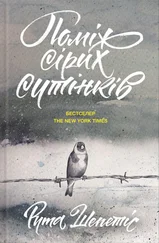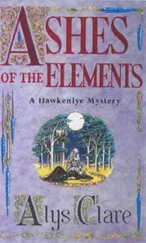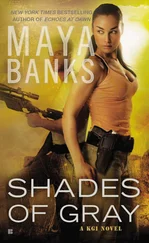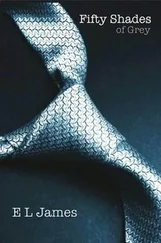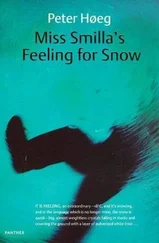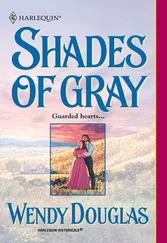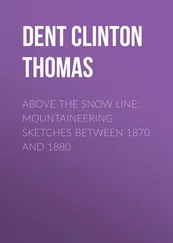Hours passed. We sat obediently, like schoolchildren in front of the principal. Finally, Komorov spoke to Kretzsky.
“He’s telling the young guard to take over,” Mother translated.
Komorov marched over to Mother. He grabbed her by the arm and spit something that resembled an oyster onto her face. Then he left.
Mother quickly wiped off the slime, as if it didn’t bother her at all. It bothered me. I wanted to roll the hate up into my mouth and spit it back in his face.
AT SUNRISE THEY TOLD us it was time to go back to work. Tired but relieved, we dragged ourselves to our shack. Ulyushka was already gone. The hut smelled of rotten eggs. We drank some of the rainwater and ate a stub of bread Mother had saved. Despite my washing efforts, my dress was still stiff with mud. My hands looked like a small animal had chewed on them. Yellow pus leaked from the blisters.
I tried my best to clean the sores with the rainwater. It didn’t help. Mother said I needed to form calluses.
“Just do the best you can, dear,” said Mother. “Move your arm as if you’re digging, but don’t press. I’ll do the work.” We set off out of the hut, walking toward the lineup for work detail.
Mrs. Rimas walked toward us, her face covered in fear. Then I saw it, the body of a man with a stake driven through his chest into the side of the kolkhoz office. His arms and legs dangled like a limp marionette. Blood soaked through his shirt and dripped to form a stain beneath him. Buzzards feasted on his fleshy bullet wounds. One pecked at his empty eye socket.
“Who is he?” I asked.
Mother gasped, grabbed me, and tried to cover my eyes.
“He wrote a letter,” whispered Mrs. Rimas.
I moved past Mother, looking at the piece of paper tacked up, fluttering next to the dead man. I saw handwriting and a very crude diagram.
“He wrote a letter to the partisans—the Lithuanian freedom fighters. The NKVD found it,” said Mrs. Rimas.
“Who translated it for them?” whispered Mother. Mrs. Rimas shrugged.
My stomach dropped, thinking of my drawings. I felt nauseous and put my hand to my mouth.
The blond guard, Kretzsky, stared at me. He looked tired and angry. Our standoff had deprived him of sleep. He marched us out to the clearing at a faster pace than normal, yelling and pushing at us.
We arrived at the large pit we had dug the day before. Looking at it, I estimated that four men lying down could fit inside. Kretzsky instructed us to dig another pit next to the first. I couldn’t erase the image of the dead man from my mind. His diagram was nothing more than a few crude lines. I thought of my drawings, lifelike and full of pain, sitting in my suitcase. I had to hide them.
I yawned and hacked away at the dirt. Mother said the time went faster if we talked about things that made us happy. She said it gave us strength.
“I want to find that village,” I said. “Maybe we can buy food or send letters.”
“How can we go anywhere, when all we do is work?” said the grouchy woman. “And if we don’t work, we don’t eat.”
“I’ll try to ask the woman I live with,” said Mrs. Rimas.
“Be careful who you ask,” said Mother. “We don’t know who we can trust.”
I missed Papa. He would know who we could ask and who we should stay away from.
We dug and dug until the water arrived. Commander Komorov was on the truck. He walked around the holes, inspecting them. I eyed the bucket of water. My hair stuck to my face. I wanted to submerge my head and drink. Komorov barked a command. Kretzsky shifted his feet. Komorov repeated the command.
Mother’s face was suddenly the color of chalk. “He says… we must get in the first hole,” she said, clenching her dress.
“For what?” I asked.
Komorov yelled and pulled a pistol from his belt. He pointed it at Mother. She jumped down into the first hole. The pistol moved to my head. I jumped in. He continued until all four of us were in the hole. He laughed and gave another instruction.
“We must put our hands on our heads,” said Mother.
“No, dear God,” said Mrs. Rimas, shaking.
Komorov walked around the hole, looking at us, pointing the pistol. He told us to lie down. We lay next to each other. Mother grasped my hand. I stared up. The sky was blue behind the silhouette of his large, square frame. He circled the hole again.
“I love you, Lina,” whispered Mother.
“Our Father, who art in heaven,” began Mrs. Rimas.
BANG!
He shot into the hole. Dirt crumbled down from above our heads. Mrs. Rimas screamed. Komorov told us to shut up. He circled around and around, muttering that we were disgusting pigs. Suddenly, he began kicking dirt from the large pile into the hole. He laughed and kicked faster and faster. The soil landed on my feet, then on my dress, then on my chest. He kicked furiously, covering us in dirt, still pointing the gun at our faces. If I sat up, I’d be shot. If I didn’t sit up, I’d be buried alive. I closed my eyes. A heavy load of dirt sat on my body. Then finally, dirt fell onto my face.
BANG!
More dirt crumbled above our heads. Komorov laughed wildly, kicking dirt onto our faces. Dirt covered my nose. I opened my mouth to breathe and choked on the soil.
I heard Komorov cackling and then hacking. He laughed and coughed, trying to regain composure, as if he had outdone himself. Kretzsky said something.
BANG!
Then it was quiet. We lay there, buried in our own efforts. I heard a muffled rumble of the truck driving away. I couldn’t open my eyes. I felt Mother squeezing my hand. She was still alive. I squeezed back. Then I heard Kretzsky’s voice above us. Mother sat up and frantically began wiping dirt from my face. She pulled me up. I hugged her, not wanting to let go. Mrs. Rimas dug the grouchy woman out. She wheezed and coughed up dirt.
“It’s okay, darling,” said Mother, rocking me into her. “He’s just trying to scare us. He wants us to sign those documents.”
I couldn’t cry. I couldn’t even speak.
“Davai,” said Kretzsky softly. He reached out his hand.
I looked up at his outstretched arm. I hesitated. He reached down farther. I grabbed his forearm. He grasped mine. I dug my toe into the dirt and let him pull me out. I stood at the side of the hole, face-to-face with Kretzsky. We stared at each other.
“Get me out of here!” yelled the grouchy woman. I looked away, where the truck had driven off. Kretzsky sent us back to digging. No one spoke for the rest of the day.
“WHAT’S WRONG?” asked Jonas when we arrived back at the shack.
“Nothing, dear,” said Mother.
Jonas looked from Mother to me, searching our faces for answers.
“We’re just tired." Mother smiled.
“Just tired,” I told Jonas.
Jonas motioned us over to his pallet of straw. Inside his small cap were three large potatoes. He put his finger to his lips so our gasps wouldn’t be audible. He didn’t want Ulyushka to take the potatoes for rent.
“Where did you get them?” I whispered.
“Darling, thank you!” said Mother. “And I think we have just enough rainwater left. We’ll make a nice potato soup.”
Mother grabbed the coat out of her suitcase. “I’ll be right back.”
“Where are you going?” I asked.
“To take food to Mr. Stalas,” she said.
I checked my suitcase, thinking of the dead man knifed up against the kolkhoz office. My drawings were undisturbed. The lining on the bottom of my suitcase was held down by snaps. I tore each drawing and page of writing from my tablet, slid it under the lining, and snapped it back in place. I would hide my messages to Papa until I found a way to send something.
Читать дальше
![Рута Шепетис Ashes in the Snow [aka Between Shades of Gray] обложка книги](/books/414915/ruta-shepetis-ashes-in-the-snow-aka-between-shades-cover.webp)
